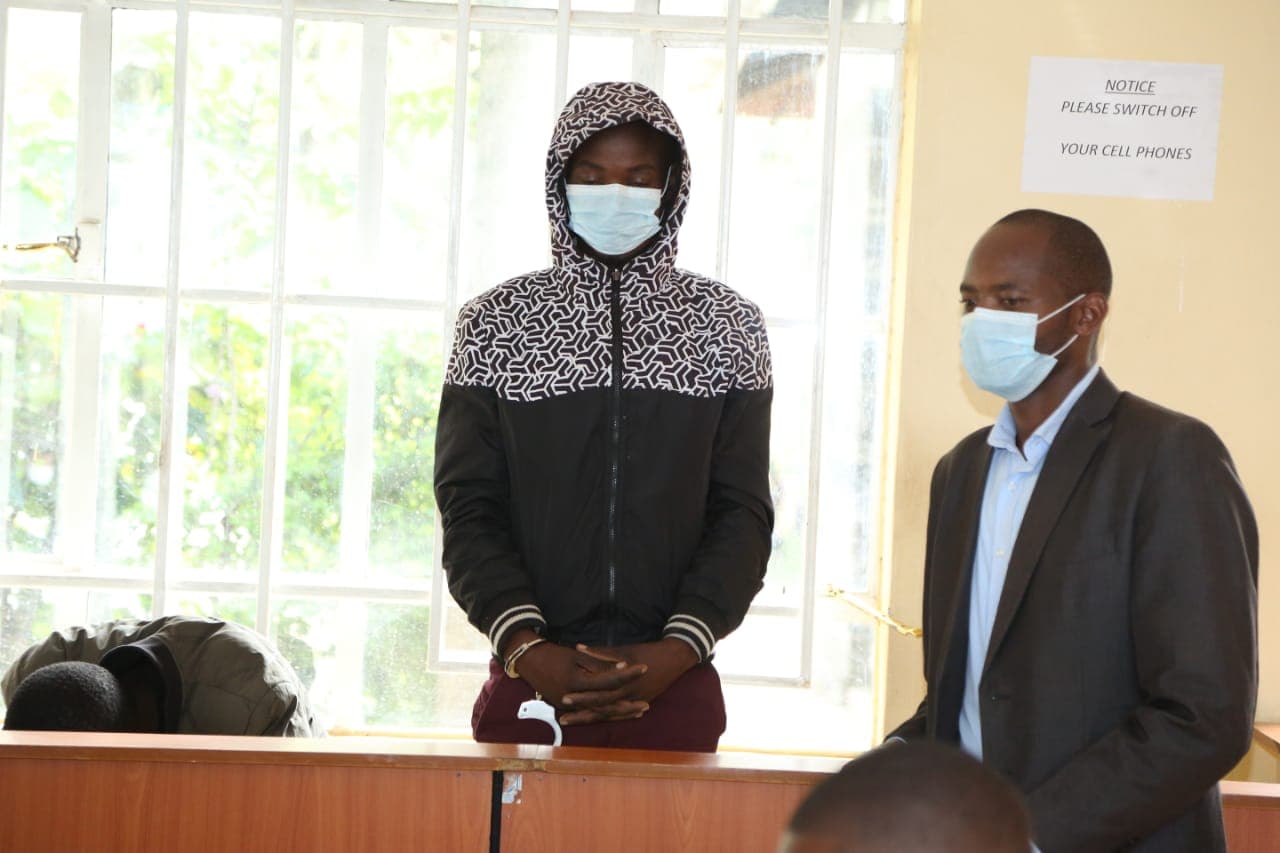We're loading the full news article for you. This includes the article content, images, author information, and related articles.
A chilling court testimony on Tuesday revealed that the brutal murders of at least four women in Nakuru’s Mawanga estate were motivated by promises of fast money, exposing the grim link between urban poverty and organised crime that continues to plague the city.

NAKURU, KENYA – The allure of escaping grinding poverty for a life of wealth led a group of young men into a criminal gang that terrorised Nakuru, culminating in the murder of at least four women in 2022, a court heard on Tuesday, November 25, 2025. In a gripping testimony before Nakuru High Court Justice Samuel Mohochi, Evans Michori Kebwaro, a key suspect who has since become a State witness, detailed how he and his accomplices were lured from low-paying construction jobs into a violent gang with promises of “quick riches.”
Kebwaro’s testimony provides the clearest insight yet into the motives behind a series of killings that shocked the nation and triggered a high-level security response. The court heard that the desire to escape the gruelling life of casual labour in Nakuru’s informal settlements made the young men susceptible to recruitment by a criminal network.
The proceedings are part of the ongoing trial of five suspects: Julius Otieno, 27, Josephat Simiyu Juma, 24, Dennis Alusiola Mmbolo, 25, Isaac Kinyanjui Nganga, 18, and Ficky Wanjala Makokha. They are charged with the murders of Grace Wanjiru, 20, on June 15, 2022; Susan Wambui, 38, on June 21, 2022; Diana Opicho, 23, on June 24, 2022; and Beatrice Akinyi, 21, in December 2021.
Kebwaro, who was arrested in Kisii County following a manhunt, recounted how he and his colleagues were working at a construction site in the Manyani informal settlement when they were approached by acquaintances. These men, he testified, mocked them for their hard labour and boasted of their own wealth, offering to introduce them to a more lucrative “job.”
Intrigued by the promise of a better life, Kebwaro and others agreed to join. He told the court that before their first operation, they were taken in a tinted vehicle to an unknown location where they were forced to take an oath of secrecy, binding them to the gang’s criminal activities. This initiation marked their entry into a violent underworld linked to the notorious “Confirm” gang, a criminal organisation long associated with fraud and violent crime in Nakuru.
“We were then asked to be ready for the first job the following day,” Kebwaro stated in court. He described how the gang’s leaders, Kevin Omondi and Julius Otieno, would plan the attacks and assign roles, which included reconnaissance, robbery, murder, and arson to destroy evidence. Their modus operandi often involved disguising themselves as utility workers to gain access to the homes of their victims, who were typically women alone during the day.
The series of murders in the Mawanga and Kiamaina areas of Bahati sub-County created a climate of intense fear among residents. The attacks were marked by their brutality, with victims often being sexually assaulted, strangled, and their bodies set on fire. The killings prompted then-Interior Cabinet Secretary Dr. Fred Matiang’i to order a major security operation to dismantle the criminal networks responsible.
Kebwaro’s arrest was a significant breakthrough. Information he provided led to the swift apprehension of his five alleged accomplices in Nakuru’s Kivumbini, Flamingo, and Bondeni slums. Following his confession, Kebwaro entered into a plea bargain agreement with the Office of the Director of Public Prosecutions (ODPP), pleading guilty to lesser charges of manslaughter in exchange for testifying against his co-accused. He is currently serving multiple prison sentences for his role in the killings.
The case casts a harsh light on the socio-economic conditions that fuel organised crime in Nakuru’s sprawling informal settlements. Reports from organisations like DIGNITY and the Global Initiative Against Transnational Organized Crime have highlighted how high unemployment, poverty, and lack of basic services in areas like Bondeni, Kivumbini, and Flamingo create a fertile breeding ground for criminal gangs. These gangs exploit the desperation of unemployed youth, offering a sense of belonging and the false promise of wealth.
Research from the University of Nairobi points to the mushrooming of informal settlements and the availability of illegal weapons as major contributors to urban crime in the city. Kebwaro’s testimony underscores this reality, illustrating a direct path from a construction site to a violent criminal enterprise, driven by the powerful and ultimately destructive allure of quick money.
The trial of the five remaining suspects continues, with the next hearing scheduled for May 11, 2026. Kebwaro’s testimony as a state witness is expected to be central to the prosecution's case.
Keep the conversation in one place—threads here stay linked to the story and in the forums.
Sign in to start a discussion
Start a conversation about this story and keep it linked here.
Other hot threads
E-sports and Gaming Community in Kenya
Active 9 months ago
The Role of Technology in Modern Agriculture (AgriTech)
Active 9 months ago
Popular Recreational Activities Across Counties
Active 9 months ago
Investing in Youth Sports Development Programs
Active 9 months ago